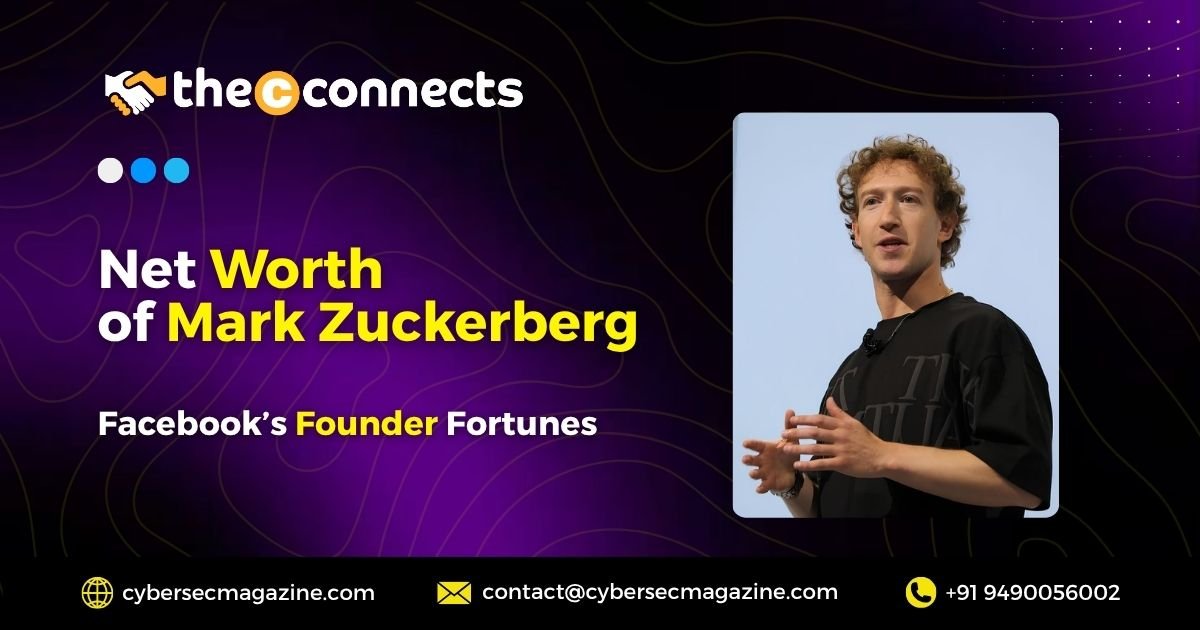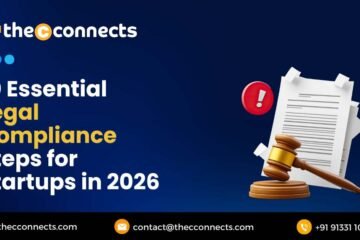For TheCconnects Magazine – insight for entrepreneurs, business leaders and C‑Suite professionals
In the digital age, Mark Zuckerberg stands as one of the most emblematic figures of the tech‑entrepreneur era: a founder who built a global social‑media platform, retained control, diversified into new ventures (including the metaverse/AI), and in the process has generated enormous personal wealth. For the audience of TheCconnects – business leaders, strategists and corporate executives – his journey is more than biography: it’s a case study in creating platform value, navigating rapid expansion, and building fortune in a fast‑shifting tech ecosystem. In this article we explore Zuckerberg’s estimated net worth in 2025, break down the key drivers of his wealth, examine strategic inflection points (and risks), and draw take‑aways for business leaders.

Current Net Worth Estimate
Estimating Zuckerberg’s net worth in 2025 requires synthesising multiple real‑time sources.
- According to Forbes, Zuckerberg’s net worth was approximately US$265.3 billion as of August 2025.
- Other sources show that his net worth climbed to around US$269 billion by August 12, 2025, largely thanks to gains in his stake in Meta Platforms shares.
- A May 2025 analysis placed his net worth in the range of US$211.8 billion to US$217.7 billion, illustrating how volatile these rankings can be.
- More recently, a sharp one‑day drop of ~US$29 billion in late October 2025 – resulting from Meta’s stock fall – pulled his wealth down to around US$235 billion.
For corporate‑strategy purposes, it is reasonable to place his net worth in the US$230‑270 billion band in 2025 – making him one of the top few richest individuals worldwide and a dominant figure among tech leaders.
How Zuckerberg Built His Wealth: The Drivers
Ownership & Control of Meta
The bulk of Zuckerberg’s wealth stems from his significant ownership stake in Meta Platforms (formerly Facebook, Inc.), the parent company of Facebook, Instagram, WhatsApp and other assets. His stake gives both economic and voting control. According to filings, Zuckerberg owns about 13% of Meta’s outstanding shares and retains more than 50% of voting power, thanks to the dual‑class share structure.
When a company with a large market capitalisation (Meta has been valued in the trillions) increases in value, the founder’s equity-especially one of such size-translates directly into personal net worth.
Platform Growth & Share Appreciation
As Meta expanded beyond just “social network” into digital advertising, messaging, and the “metaverse” ambition, the market rewarded it with significant valuation. For example, as of Q2 2025, one report noted Zuckerberg’s net worth jumped to ~US$271 billion after a Meta earnings release.
In short: platform dominance + equity ownership = vast wealth accumulation.
Reinvention & Strategic Investment
Zuckerberg has led Meta into new frontier areas, including virtual reality/augmented reality (via Oculus/Meta Quest), and more recently Artificial Intelligence (AI) and “superintelligence” labs. One June/July 2025 piece noted Meta’s commitment to invest tens of billions into AI infrastructure, which impacts future valuation.
For business leaders, this shows how evolution beyond the core business keeps the wealth engine running.
Real‑Assets and Diversification
While the largest portion of his net worth is tied up in Meta equity, Zuckerberg also owns (or has access to) real‑estate holdings, personal investments, and philanthropic structures. For instance, he holds property in Hawaii, Palo Alto, Lake Tahoe and Washington D.C.
Key Strategic Inflection Points
- 2004‑2012: Zuckerberg co‑founded Facebook (2004) while at Harvard. Facebook’s IPO (2012) marked the turning point for his wealth creation.
- 2018‑2021: Meta’s re‑branding and push into Instagram, WhatsApp, ads growth and initial metaverse ambitions significantly expanded its scope.
- 2024‑2025: The tech environment shifted toward AI. Meta’s share price, advertising revenue and future‑oriented investment (AI/metaverse) created momentum for Zuckerberg’s wealth. For example, a ~30 % share price rise in 2025 translated into a +~US$61.5 billion boost to his fortune.
- Late 2025: A sharp stock‑market reaction to Meta’s heavy AI investment and increased spending saw one‑day losses in his net worth of ~US$29 billion.
These shifts illustrate the power-and volatility-of founder wealth in platform‑driven, publicly‑traded companies.
Risks & Strategic Considerations for Business Leaders
For C‑Suite professionals, Zuckerberg’s net‑worth story also offers important cautionary signals:
- Stock & market exposure: When most of one’s wealth is in one company (especially publicly‑traded), market sentiment, regulatory changes and competitive dynamics can quickly impact personal fortune and business valuation.
- Platform risk & reinvention: Meta’s shift from social‑media to metaverse/AI shows necessity to evolve-but those bets carry capital risk and investor scrutiny. Meta’s recent classification of a major AI investment payout created concern.
- Regulation & reputation: Meta and Zuckerberg have faced regulatory and societal scrutiny (privacy, antitrust, misinformation). Such risks can affect brand, operations and valuation.
- Succession & governance: As a younger leader (Zuckerberg is in his 40s), continued dominance depends on governance, talent pipeline, and the success of new strategic pivots.
- Diversification vs concentration: While Zuckerberg is expanding ventures, the concentration of his wealth remains high in Meta. For enterprises, diversification can hedge risk-but it must align with core capabilities.
Lessons for Entrepreneurs, Executives & Strategists
Zuckerberg’s journey provides several strategic insights:
- Platform ownership is the ultimate lever: When you build or control a platform with network effects (users, data, monetisation), the value potential is enormous.
- Equity, not just salary, matters: Founders and early‑stage executives should aim to build equity stakes, not just compensation, because wealth accumulates via ownership appreciation.
- Evolve with your ecosystem: Zuckerberg didn’t stay static in social media. He recognized the next frontier (AR/VR/AI) and committed resources. Successful companies evolve.
- Balance stake control and voter control: Zuckerberg retained voting control despite diluting ownership-ensuring long‑term strategic alignment. For business leaders, controlling decision‑rights can matter as much as owning shares.
- Invest in the future, but manage risk: Meta’s aggressive investment into AI shows ambition-but also risk. For corporate leaders, managing growth vs stability is a delicate balance.
Final Thoughts
In 2025, Mark Zuckerberg stands among the richest individuals on the planet, with a net worth estimated in the US$230‑270 billion range. His wealth is a by‑product of building one of the world’s most powerful platforms (Meta), retaining significant ownership/control, and continually investing in future frontiers like AI and the metaverse.
For readers of TheCconnects Magazine – entrepreneurs, business strategists, and corporate leaders – his story is not simply about wealth accumulation. It is about platform strategy, equity leverage, future readiness, and the interplay between a founder’s vision and business scaling.
If you’d like to feature your own leadership story or provide guest commentary for TheCconnects, we invite you to connect with us:
📩 Email: contact@thecconnects.com
📞 Call: +91 91331 10730
💬 WhatsApp: https://wa.me/919133110730
TheCconnects – where analysis meets influence.



